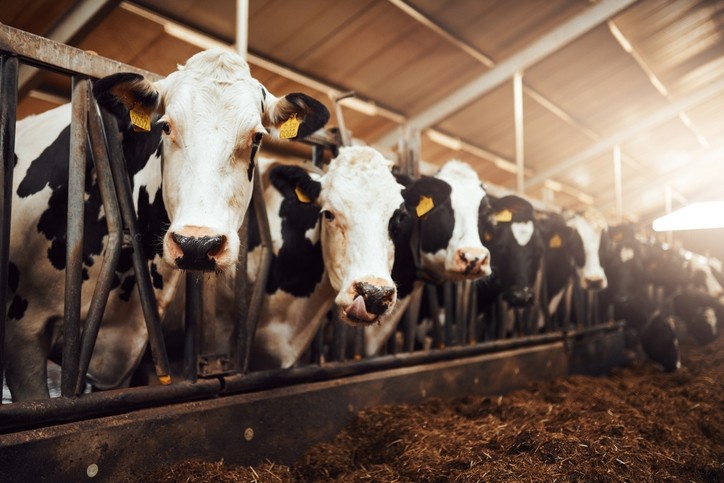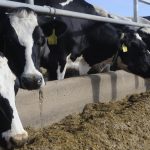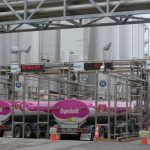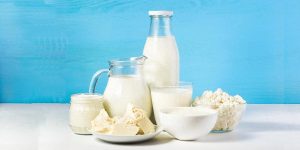
FrieslandCampina, a dairy cooperative owned by owned by Dutch, Belgian, and German dairy farmers, notes the considerable progress its members made in meeting environmental goals in 2023.
Detailing those efforts, it said farmers implemented various measures to improve their results and earn financial bonuses, including increasing cow longevity, reducing greenhouse gas (GHG) emissions with feed additives, sourcing low-carbon animal feed, fermenting manure, enhancing biodiversity by growing more home-grown protein, increasing permanent grassland, and sowing herb-rich grassland.
They earned over €245m (US$263m) in premiums for doing so.
Of that €245m payout, about €190m was awarded through FrieslandCampina’s ‘Foqus planet sustainable development’ incentive system, while over €55m was for participation in special milk flows such as organic, On the way to PlanetProof, and VLOG. On average, this translates to €2.63 in premiums per 100 kg of farm milk, according to the dairy company.
When asked about the impact of this average payout on the overall profitability and cost structure of the dairy farmers, a cooperative spokesperson told this publication:
“These premiums make sustainability measures financially attractive for dairy farmers, allowing for diverse approaches suited to each farm. Combined with the guaranteed price and the supplementary cash payment, this ensures a leading milk price and a good living for farmers.”
The Foqus planet premium received by FrieslandCampina member dairy farmers is funded through multiple sources: the company itself, customers who pay for sustainability efforts, and the farmers, who contribute via a cooperative deposit of €0.60 per 100 kg of milk, totaling over €56m.
GHG emissions targets
An additional incentive in the Foqus program is that the highest bonus is set against GHG emissions reduction, with payments reaching up to €1.50 per 100 kg of milk.
The spokesperson added: “In the coming weeks, we will calculate and determine the total GHG emission reductions achieved on-farm for 2023, and the results will be published next month.”
Last year, FrieslandCampina entered into agreements with key international buyers, such as Mars, McDonald’s, and Mondelēz International, to support the accelerated reduction of GHG emissions during milk production for dairy products supplied to these customers. It says these partnerships enable it to remunerate its member farmers for reducing GHG emissions by 14% by 2025, compared to a 2019 baseline.
The representative continued: “Customers are increasingly interested in co-investing in new farm innovations to accelerate their climate goals. FrieslandCampina collaborates with various parties to innovate and reduce climate and nature impacts. In 2023, pilots were conducted on member farms to integrate innovations, assess costs, reductions, and impacts on animal health and milk quality. Key projects included a 10-year carbon sequestration initiative, trials with HVO diesel, methane oxidation, and feed additives like Bovaer and SilVair. Additionally, a ‘development group’ of member dairy farmers was formed to refine and scale up new practices, with growing B2B customer interest and investment.”
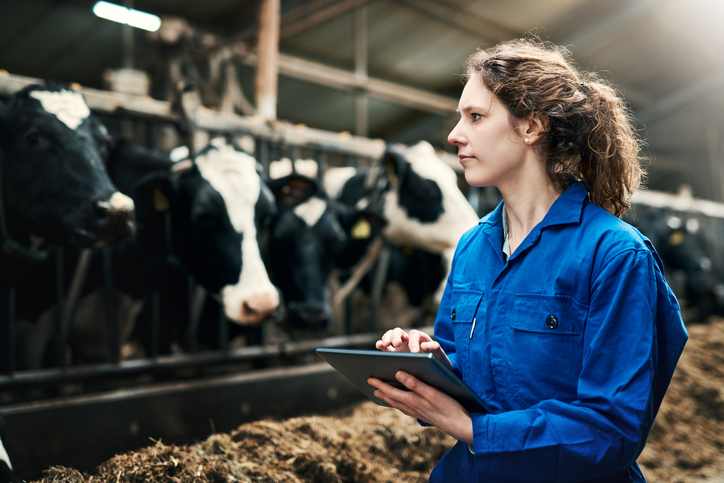
Transparency and accountabilty
To ensure transparency and accountability in reporting sustainability performance, FrieslandCampina uses “objective, science-based tools” to provide farm-specific insights.
The spokesperson explained: “An external accountant audits our annual sustainability report. The Annual Nutrient Cycling Assessment, used by 10,000 member farms, tracks sustainability progress, including carbon footprint and biodiversity indicators. Emissions are calculated using the KringloopWijzer model from Wageningen University. To measure farm impact on biodiversity, we created the Biodiversity Monitor with WWF and Rabobank, which uses KPIs like GHG emissions and nitrogen balance. Farmers can access their scores and identify improvement areas. An assurance model ensures data reliability.”
You can now read the most important #news on #eDairyNews #Whatsapp channels!!!
🇺🇸 eDairy News INGLÊS: https://whatsapp.com/channel/0029VaKsjzGDTkJyIN6hcP1K
